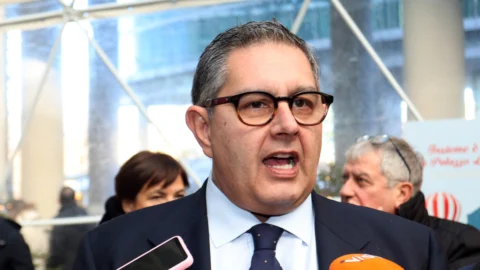The application of the directive European Union on the energy efficiency of homes, in Italy you will find a situation that is, to say the least, confused. While the sales market has risen by about 3% compared to 2022, the Municipalities are asking the government for a framework law son housing construction. It is the second request within a few days that sees the mayors and the government on opposite sides. The other regards the letter from the President of the Anci, Antonio DeCaro, on the platform Regis pfor the projects of the PNRR. There are computer leaks and indications in-out on how to monitor projects for funding. The Municipalities are the implementing subjects but the progress is as if jammed. These are construction sites to be started for works to be completed within the next three years. As regards the housing situation, it is more urgent, difficult to keep under control, especially for public construction. According to the picture made by the councilors for the house, energy efficiency unfortunately comes after other emergencies. FederCasa has calculated that there are 750 public housing and inhabited by two million people: 3% of the Italian building stock. An important piece where it is necessary to act before it's too late.
The manifesto for a turning point after 20 years
In Bologna in the workshop "A municipalist alliance for a national housing policy" the representatives of the Municipalities together with the ancient they launched a manifesto in 5 points to bring order to the sector. First of all the request for a law and following the best practices.It should be articulated on the free return to the Municipalities of state buildings not used for residential purposes; the refinancing of lease funds and innocent defaulters; the regulation of short-term tourist rentals; recognition of the state of housing emergency; new interventions and resources. The first signatory cities of the manifesto are Rome, Milan, Naples, Turin, Bologna, Florence, Verona, Padua, Parma, Lodi, Bergamo. The confusion has been building up over the past twenty years. There was a process of regionalization of housing policies which has resulted in public fragmentation. "The process has led to a substantial disengagement of the State towards integrated urban policies, say the Municipalities, with the consequence that the right to housing has become different or less depending on the Region of residence". On the illegal occupation of houses and the need to intervene Fratelli d'Italia has presented a bill that provides for up to 9 years in prison. Empty houses throughout Italy would be approx 10 million, while executive evictions have reached 40. It is clear that talking about energy efficiency and interventions with PNRR funds become meaningless slogans. Even for the premier's party.
Why aren't state-owned buildings being used?
In the Municipalities, therefore, the accounts do not add up with respect to everything that is planned in Brussels to renovate homes, make them more sustainable, remodulate city spaces also according to economic activities. There are phenomena common to many cities medium and large, explains the Anci. The most evident for housing are short-term rentals for tourist use, which are reflected in the entire housing system, the costs charged by private individuals to rent houses to off-site students, mediation and additional costs of various kinds. The attention of Mayors and builders is then directed to the large amount of abandoned properties owned by state or para-state entities. It gets even worse when these paradoxical situations are connected to the needs of migrant citizens or persons enjoying international protection. Only in the city of Rome – he says Confidentiality – there are 7 occupied dwellings and 92 buildings. Problems that ultimately fall on the Mayors. The proposals that arrived from the Bologna meeting are "to recompose these problems and mend these differences, through concrete actions on a national scale in order to guarantee identical rights and at the same time to recognize territorial diversity". For situations of real social need - said the President of Confedilizia Giorgio Spaziani Head– public buildings can be allocated, but in a legal manner, often let go”. Legislative initiatives and financial policies are needed, the Mayors relaunch, because the Municipalities have already paid an unsustainable cost for the disengagement of the State. IT tools should favor the interaction between center and periphery, especially when they are available money available. The Mayors' criticisms certainly don't please the government which can instead translate them to its own advantage to deal with complicated situations and not add blame to blame.





